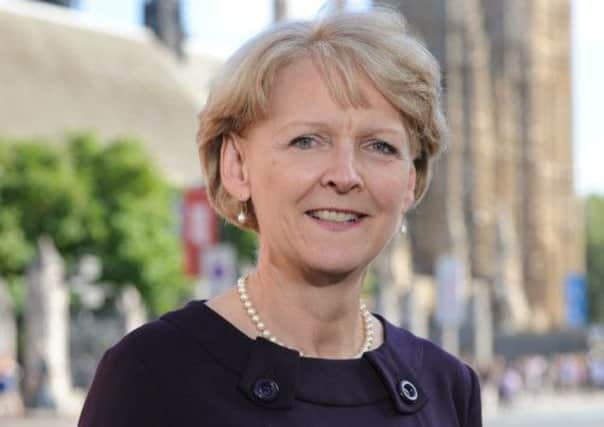‘Punish councils that fail over local planning’


Liz Peace, chief executive of the British Property Federation, said she believes that there needs to be a way of judging the success or failure of local authorities to implement Government policy.
Speaking to the Yorkshire Post at the Royal Town Planning Institute Young Planners Conference in Leeds yesterday, Ms Peace said: “Central Government should set the framework and let the local authority get on with implementing it.”
Advertisement
Hide AdAdvertisement
Hide AdShe added: “If a local authority hasn’t got a sensible and strategic local plan for its area, then I think there should be an issue about it drawing down funds, it’s as simple as that.
“A corporation, a subsidiary, wouldn’t be allowed money and resource from the centre if it hadn’t got a business plan that conformed with the overall strategy for the organisation.
“Local government is well intentioned... they struggle with resources and competing issues, but at the end of the day they are elected and put there to make difficult decisions.”
Ms Peace supported Lord Heseltine’s idea of creating a single funding pot, such as a simple tax break, for regional spending but urged the Government to do more to help growth.
Advertisement
Hide AdAdvertisement
Hide Ad“On the one hand, the Government says: ‘have this concession’ and on the other says ‘But we’ll put some rules in place to make sure it’s of limited value’. They need to make a decision and make it happen.”
Two hundred young planners packed into Leeds City Museum for the first day of the two-day annual conference to hear speakers including Steve Quartermain, chief planner at the Department for Communities and Local Government (DCLG), Bob May, office director at Turley Associates, Clive Betts, chairman of the DCLG Select Committee, Andrew Whitaker, planning director at the Home Builders Federation and Chris Brown, chief executive of Igloo Regeneration.
The theme of this year’s conference was Planning Out of Recession, which scrutinised the UK planning system and discussed how it could evolve to enable greater delivery of growth and prosperity in the future.
Ms Peace said: “You want a strong economy that is going to create high demand that will lead to people to go out and do development and refurbishment.
Advertisement
Hide AdAdvertisement
Hide Ad“That will create employment and investment and that contributes to the strengthening of the economy.
“The problem is that since 2007/8 there has been a vicious circle rather than a virtuous circle so the issue is how to break the vicious circle.
“The built environment is an important part of that.
“But you can’t just depend on planning to do that, there needs to be a broader set of things that need to happen.”
Ms Peace said planning can be a barrier to growth but that was not the case everywhere.
Advertisement
Hide AdAdvertisement
Hide Ad“In places that have got strong civic leadership, planning is not a barrier,” she said. “If you can put strong civic leadership in place, you can grow your way out of the recession and handle the planning system in a way that supports that.”
She praised the Trinity retail development for boosting the centre of Leeds.
“I’ve talked to people at Leeds City Council and Land Securities and they’ve ended up with an exceedingly good project that’s very good for Leeds,” she said.
“Now Hammerson are pressing ahead with plans for Victoria Gate, so they are also in a dialogue with a local authority that understands the benefit of development in its city centre.”
Advertisement
Hide AdAdvertisement
Hide AdShe added: “The place that’s probably struggling at the moment is Sheffield where there has been an issue with the preferred developer and the local authority.
“But it’s more complicated than just a fight between the developer and the council. Sheffield’s problems go back a long way.”
Addressing the conference, Bob May, office director at Leeds-based planning consultancy Turley Associates, criticised the planning system, which has been reformed in recent years, for remaining too bureaucratic.
But Steve Quartermain, chief planner at the DCLG, said planning application approval rates were at a 13-year high with 89 per cent of applications approved between May and June 2013.